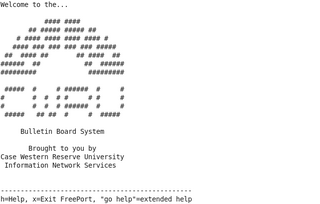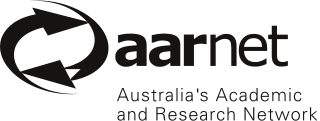Present-day telecommunications in Canada include telephone, radio, television, and internet usage. In the past, telecommunications included telegraphy available through Canadian Pacific and Canadian National.

Hyphanet is a peer-to-peer platform for censorship-resistant, anonymous communication. It uses a decentralized distributed data store to keep and deliver information, and has a suite of free software for publishing and communicating on the Web without fear of censorship. Both Freenet and some of its associated tools were originally designed by Ian Clarke, who defined Freenet's goal as providing freedom of speech on the Internet with strong anonymity protection.

The history of the Internet has its origin in the efforts of scientists and engineers to build and interconnect computer networks. The Internet Protocol Suite, the set of rules used to communicate between networks and devices on the Internet, arose from research and development in the United States and involved international collaboration, particularly with researchers in the United Kingdom and France.

The Internet is the global system of interconnected computer networks that uses the Internet protocol suite (TCP/IP) to communicate between networks and devices. It is a network of networks that consists of private, public, academic, business, and government networks of local to global scope, linked by a broad array of electronic, wireless, and optical networking technologies. The Internet carries a vast range of information resources and services, such as the interlinked hypertext documents and applications of the World Wide Web (WWW), electronic mail, telephony, and file sharing.

Wireless community networks or wireless community projects or simply community networks, are non-centralized, self-managed and collaborative networks organized in a grassroots fashion by communities, non-governmental organizations and cooperatives in order to provide a viable alternative to municipal wireless networks for consumers.

A Tier 1 network is an Internet Protocol (IP) network that can reach every other network on the Internet solely via settlement-free interconnection. Tier 1 networks can exchange traffic with other Tier 1 networks without paying any fees for the exchange of traffic in either direction. In contrast, some Tier 2 networks and all Tier 3 networks must pay to transmit traffic on other networks.

An Internet service provider (ISP) is an organization that provides services for accessing, using, managing, or participating in the Internet. ISPs can be organized in various forms, such as commercial, community-owned, non-profit, or otherwise privately owned.

A free-net was originally a computer system or network that provided public access to digital resources and community information, including personal communications, through modem dialup via the public switched telephone network. The concept originated in the health sciences to provide online help for medical patients. With the development of the Internet free-net systems became the first to offer limited Internet access to the general public to support the non-profit community work. The Cleveland Free-Net (cleveland.freenet.edu), founded in 1986, was the pioneering community network of this kind in the world.
An anonymous P2P communication system is a peer-to-peer distributed application in which the nodes, which are used to share resources, or participants are anonymous or pseudonymous. Anonymity of participants is usually achieved by special routing overlay networks that hide the physical location of each node from other participants.

AARNet provides Internet services to the Australian education and research communities and their research partners.
A dark net or darknet is an overlay network within the Internet that can only be accessed with specific software, configurations, or authorization, and often uses a unique customized communication protocol. Two typical darknet types are social networks, and anonymity proxy networks such as Tor via an anonymized series of connections.

Network neutrality, often referred to as net neutrality, is the principle that Internet service providers (ISPs) must treat all Internet communications equally, offering users and online content providers consistent rates irrespective of content, website, platform, application, type of equipment, source address, destination address, or method of communication.
Several Internet networks in Central Asia, specifically, Kazakhstan, Kyrgyzstan and Uzbekistan are financed by USAID and other United States governmental authorities and are called Freenet. In contrast with the decentralized censorship-resistant peer-to-peer file sharing software called Freenet, which is specifically designed to be very censorship-resistant, and in fact, to increase distribution of information in the case of censorship attempts, there is little information regarding the independence of the Central Asian networks from censorship by the operating authorities.
National Capital FreeNet (NCF), is a non-profit community organization internet service provider, with the goal of linking people in Canada's capital of Ottawa and ensuring no Ottawa citizens would be excluded from internet access.
Vancouver Community Network (VCN) is a community-owned provider of free internet access, technical support, and web hosting services to individuals and nonprofit organizations in Vancouver, British Columbia.
Telecommunications in Angola include telephone, radio, television, and the Internet. The government controls all broadcast media with a nationwide reach.

United Internet AG is a global Internet services company headquartered in Montabaur, Rhineland-Palatinate, Germany. The company is structured in two business areas, Access and Applications, and has a total of 16 brands and numerous subsidiaries. The well-known brands under the umbrella of United Internet AG include 1&1, IONOS, Fasthosts, GMX, WEB.DE and 1&1 Versatel.
Hurricane Electric is a global Internet service provider offering internet transit, tools, and network applications, as well as data center colocation and hosting services at two locations in Fremont, California, where the company is based.

1&1 AG is a German telecommunications service provider headquartered in Montabaur, Rhineland-Palatinate and listed on the TecDAX. Since 2017, the majority of the company has belonged to United Internet, and offers both mobile and landline services.
Mnet or M-net may refer to:









